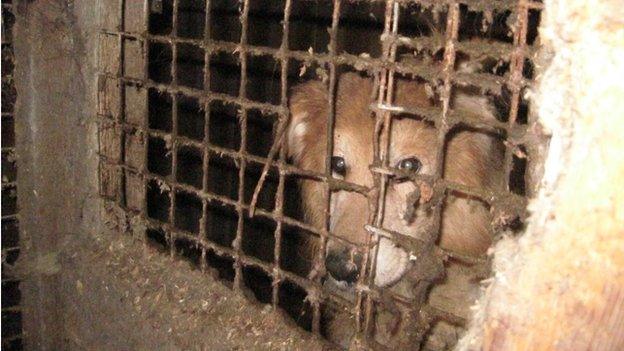Scottish SPCA admits investments in animal testing company
- Published
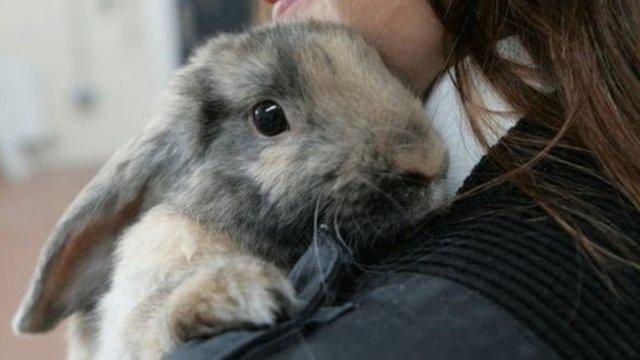
Scotland's largest animal welfare charity has admitted it still owns shares in an oil company that carries out tests on animals.
The Scottish SPCA owns shares in Shell worth £600,000 - but it claims many of them were donated by supporters.
Shell has admitted experiments on animals including rabbits, rodents, birds and fish.
The SSPCA said it had a responsibility to generate the "best returns available" to fund animal rescues.
It told BBC Scotland it bought shares in Royal Dutch Shell in 2005 - but would not confirm how many it purchased.
According to the charity, the majority of its current holding in Shell -worth £605,710- comprises of shares donated by supporters, often in their wills.
'Embarrassing situation'
The issue was first brought to the SSPCA's attention by journalists, after they discovered references to Shell investments in previous SSPCA annual accounts.
The SSPCA declined to say whether or not it would sell the shares, but said all investments would be reviewed "as per standard practice" at the end of February.
Animal rights campaigner John Robbins accused the charity of dragging its feet.
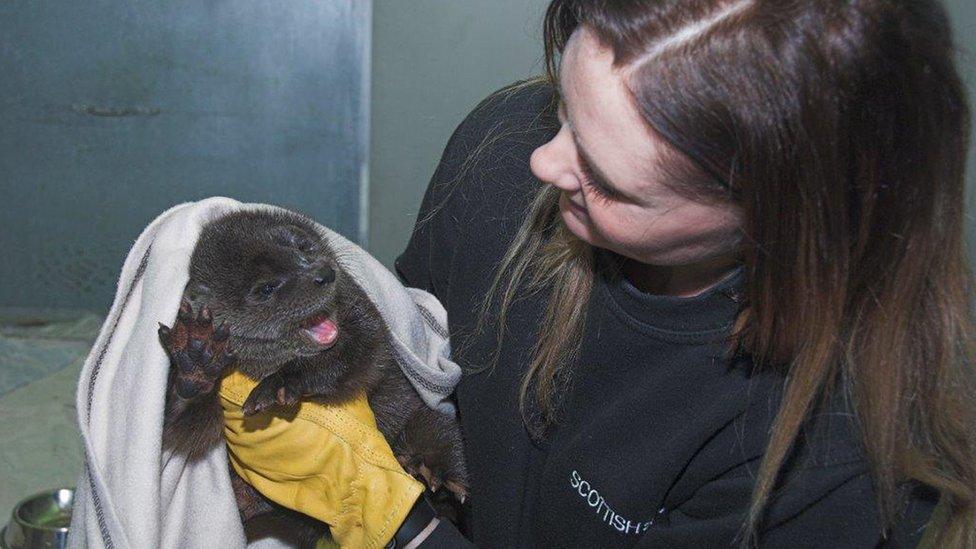
The SSPCA rescue abused, abandoned and neglected animals on land and at sea in Scotland
He said: "They've known about this for 12 years, and they don't seem to have done much about it."
Mr Robbins suggested the SSPCA could hire an ethical investments specialist to get itself out of what he called a "very embarrassing situation".
Scottish Conservative MSP Annie Wells said she believed the charity should be put under pressure to sell its shares in Shell.
'No-go area'
The latest figures published on Shell's website, external show the firm was involved with laboratory experiments on more than 100,000 animals in 2015.
The oil giant was fined for leaking more than 200 tonnes of oil into the North Sea off Aberdeen in 2011 - an accident wildlife campaigners warned put Scotland's seabirds, dolphins and fish at risk.
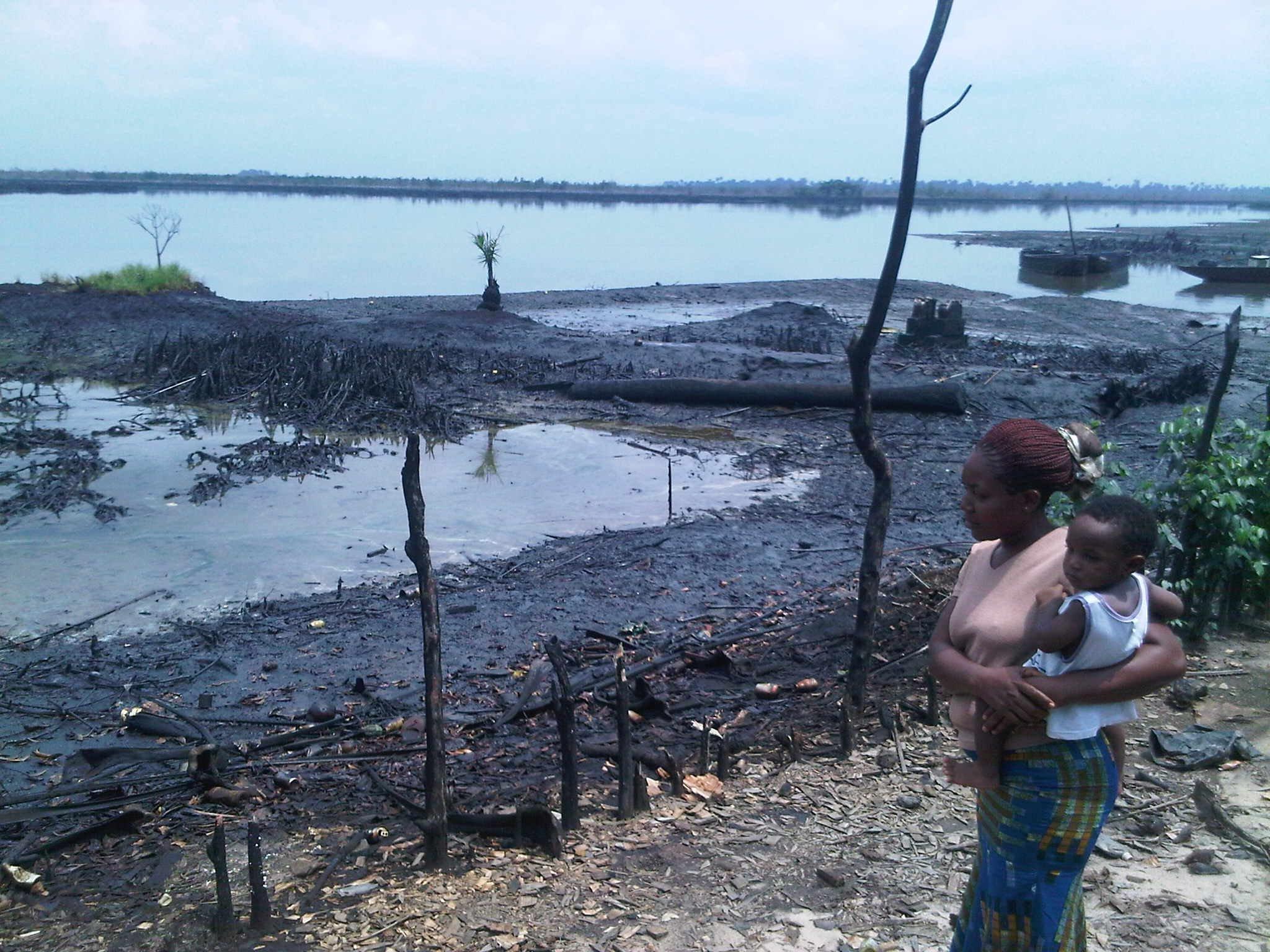
Taken in West Africa in 2011, this picture shows an area that was previously rich in mangroves, which died as a result of oil spills Shell admitted liability for
But wealth manager John Douglas, of Finesco, said he understood why the SSPCA would hold shares in Shell.
He said: "We would regard [Shell shares] as a core holding in any of our UK income equity funds - it's a very attractive income producer."
Elisa Allen, Peta UK director, said: "Certain corporations should leap out at a charity as being a no-go area where investment is concerned. Peta urges charities to be consistent with their own goals and try hard to align their pennies with their patrons' wishes."

Has the SSPCA broken any rules?
The SSPCA did not explicitly prohibit itself from buying new investments in companies that undertake tests on animals until 2006 - a year after it bought shares in Shell.
In 2005, the SSPCA's investment policy was less specific, stating: "Investments may be made in any share or bond unless the underlying activity of the company or institution concerned is in direct conflict with the aims of the Scottish SPCA."
OSCR, the Scottish charity regulator, is not investigating the SSPCA but it said: "Investments should always be made in line with any powers and caveats set out in [a charity's] governing document."
When asked by BBC Scotland why it was not investigating, the charity regulator declined to comment.

What do other organisations do with donated shares?
Harry Huyton, director of One Kind, an animal protection charity based in Edinburgh, said that while holding ethical investments had become easier in recent years, he believed progress could be made.
"I would love to get to a place where our investments were actively working to deliver progress in animal protection, rather than simply screening out companies that undermine our goals," he said.
"If we were given a share in Shell it would not be consistent with our ethical investment policy, so we would have to politely turn that gift down or liquidate it and put [the value] into a better place."
The Royal Society for the Protection of Birds said: "Shares generously donated to us by members or as part of an estate are sold with any proceeds being invested back into the RSPB's work to save nature."

Scottish SPCA chief superintendent Mike Flynn said: "The Scottish SPCA has a number of business investments, managed by professional investment managers on our behalf, in line with many other charitable organisations across the UK.
"We can confirm that we have not purchased shares in Shell for over 12 years.
"Any investments purchased since 2005 have been in line with the society's ethics and principles which are emphasised to our investment managers.
"The majority of the shares we currently hold in Shell were donated or left to us by supporters in their wills in order for the society to generate future income.
"It is our responsibility to generate the best returns available to help fund the society's mission to rescue and rehome abused, abandoned and neglected animals in Scotland.
We will be reviewing our current investment portfolio, as per standard practice, in the next few weeks."
A Shell UK spokesman said: "Shell is committed to eliminating the need to do testing involving animals. We aim to replace animal testing by suitable alternatives while ensuring that we can continue to innovate, develop and maintain new and safe products and technologies."
- Published1 November 2016
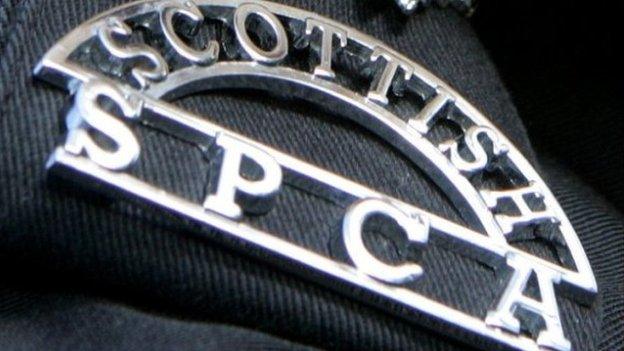
- Published31 March 2014

- Published23 October 2014
